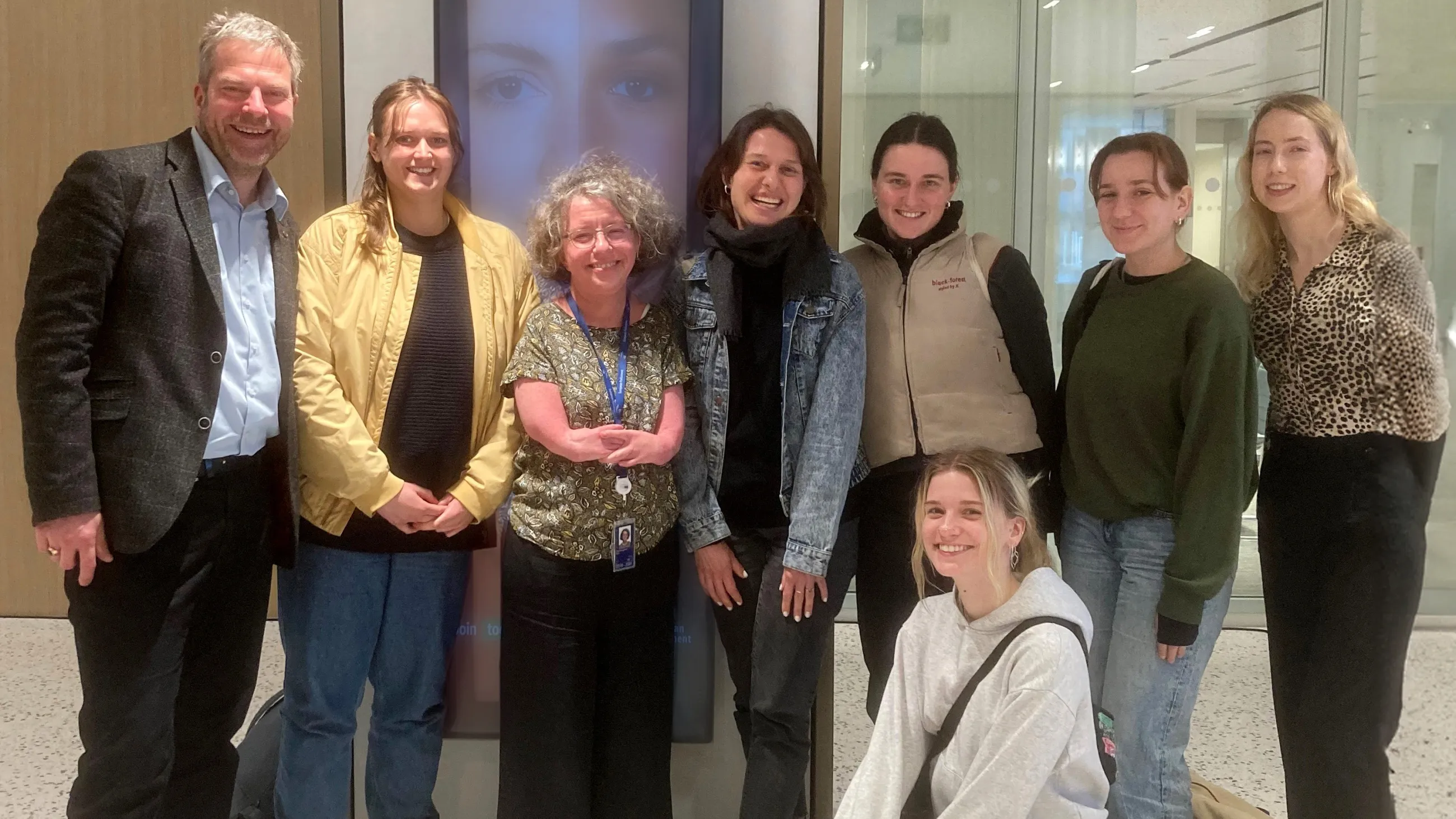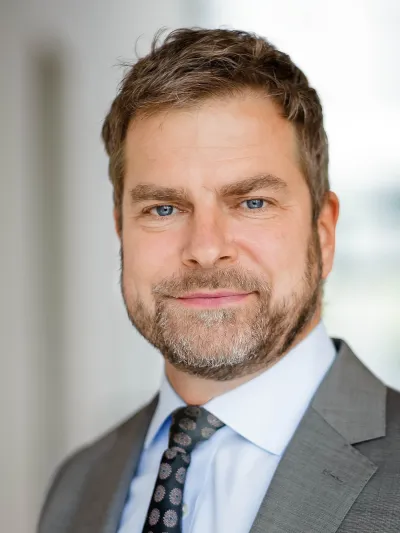Retrospective
Report from the FHP Real Lab Excursion "What does the EU have to do with Social Work?" to Brussels

The European Union seems very far away and very complex. But does this "supranational entity" have any connection to social work, and if so, what is it? To investigate this question, six social work students went on an excursion to Brussels for several days from the 8th to the 12th of April 2024 as part of the real-world laboratory "What does the EU have to do with social work?".
As part of an ERASMUS+ semester abroad in the previous winter semester, they had all researched a field of social work of their choice in that country. The aim now was to find out whether and, if so, what links there are between this field of work and the EU. In the ‘Capital of Europe’, meetings were held with representatives of the institutions:
- MEP Katrin Langensiepen, who was elected to the European Parliament for the Party DIE GRÜNEN in 2019, is a member of the Committee on Employment and Social Affairs.
- At the European Commission, the group in the Directorate-General for Employment, Social Affairs and Inclusion was informed about the 20 action goals of the European Pillar of Social Rights and their implementation status.
- At the Permanent Representation of the Federal Republic of Germany to the EU, the Head of the Department of Labour and Social Affairs reported on the issues of particular importance in this area from a German perspective.
- In the permanent exhibition in the Parlamentarium, the group was able to see for themselves how the idealism of a few people in a devastated post-war Europe led to the founding of the European Communities with the aim of preserving peace and how this project has developed to this day and has impressively served this goal.
In addition to the institutions, there were also meetings with representatives of civil society who are endeavouring to get their issues onto the EU's social policy agenda in Brussels:
- FEANTSA, an umbrella association of organisations campaigning for the abolition of homelessness, particularly through the "housing first" methodological approach.
- Eurochild, a network for child and youth protection and participation. Among other things, it maintains a Europe-wide advisory board made up of minors who have a say in the organisation's work priorities and even in the selection of staff.
- Social Platform, the largest umbrella organisation of European non-governmental organisations, which does not stand for any specific topic but gives weight to social issues in Europe by bringing together many members.
- COFACE, a network that promotes the well-being, health and safety of families and their individual members in a changing society.
- European Social Networks, a network of social services in the public sector, which endeavours to exchange best practice solutions in the field of social and youth services and similar institutions throughout Europe.
It is not only the fact that these dialogue partners exist that makes it clear that issues relevant to social work are negotiated at EU level. Depending on the field of work, binding EU legislation or so-called "soft law" can be identified. This includes resolutions or recommendations with the aim of raising awareness and promoting certain topics on the part of the EU, even without legislative competence. What was impressive was the great openness of all the dialogue partners, both to report on their work and, conversely, to learn about the views of us EU citizens. Everyone was also united by the need to draw attention to the landmark European elections on the 9th of June 2024. The composition of the European Parliament will determine, among other things, the continuation of the EU's peacekeeping mission.
